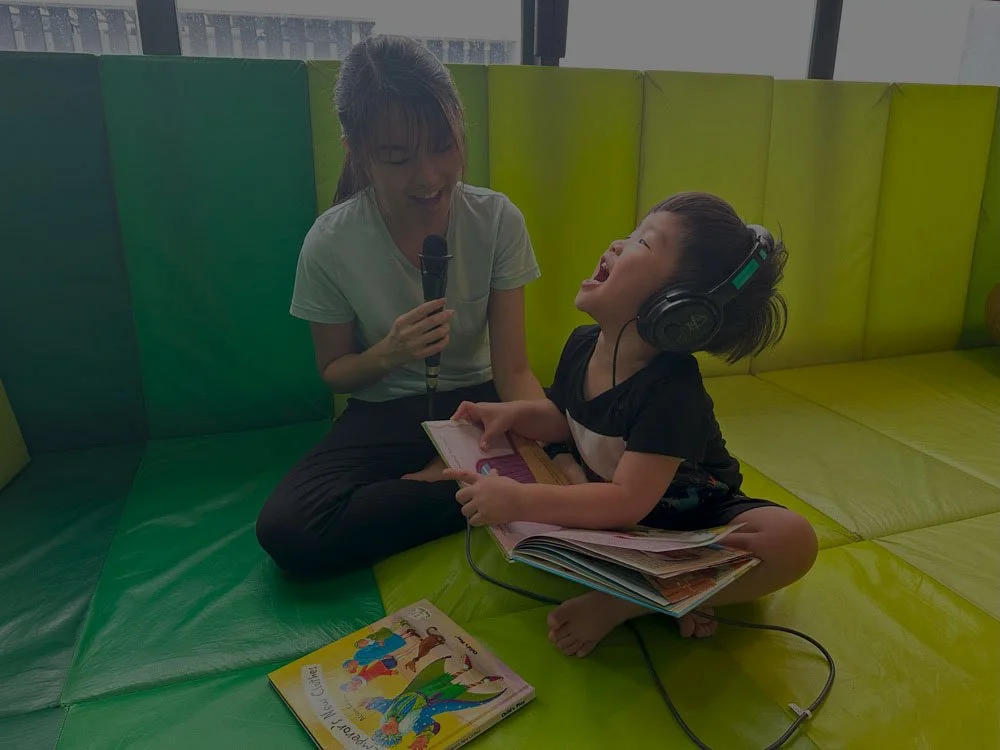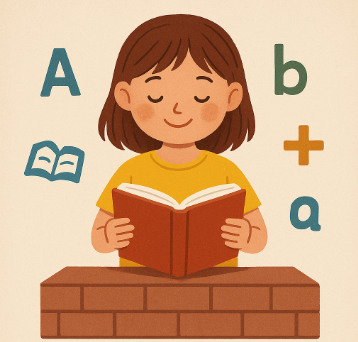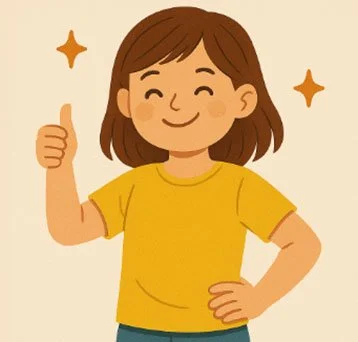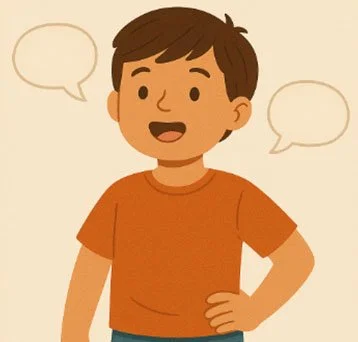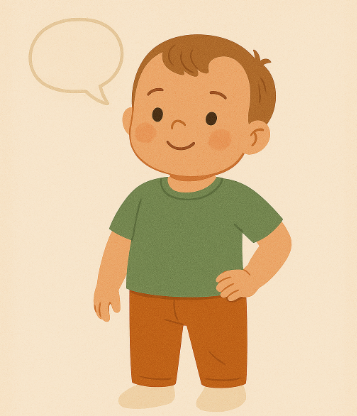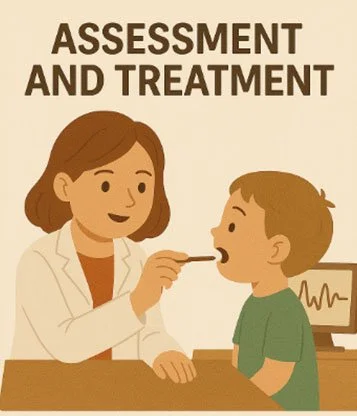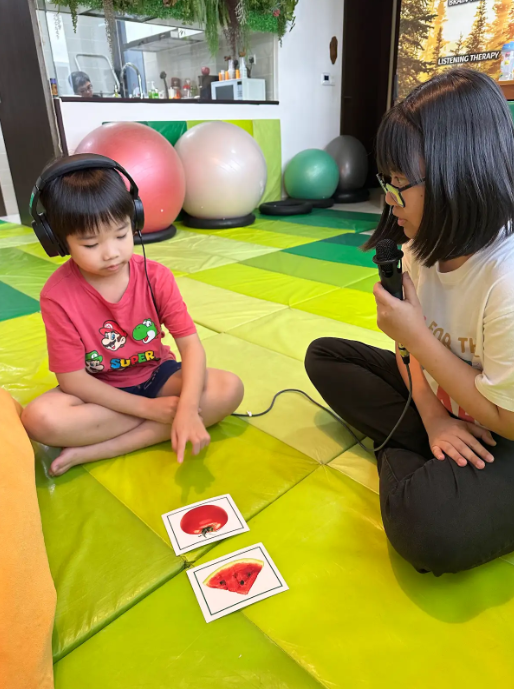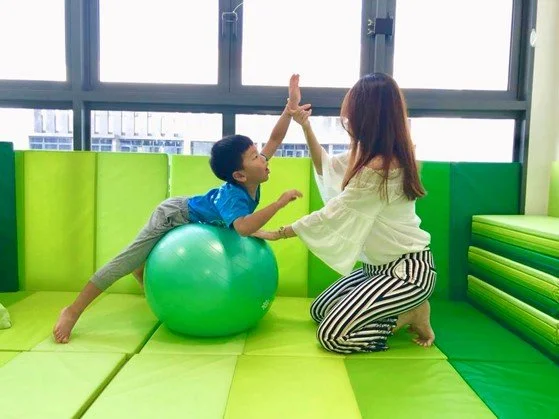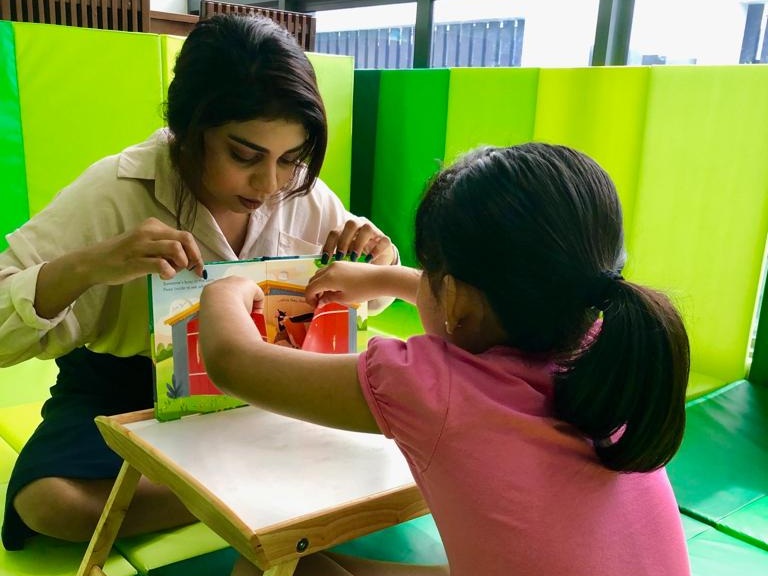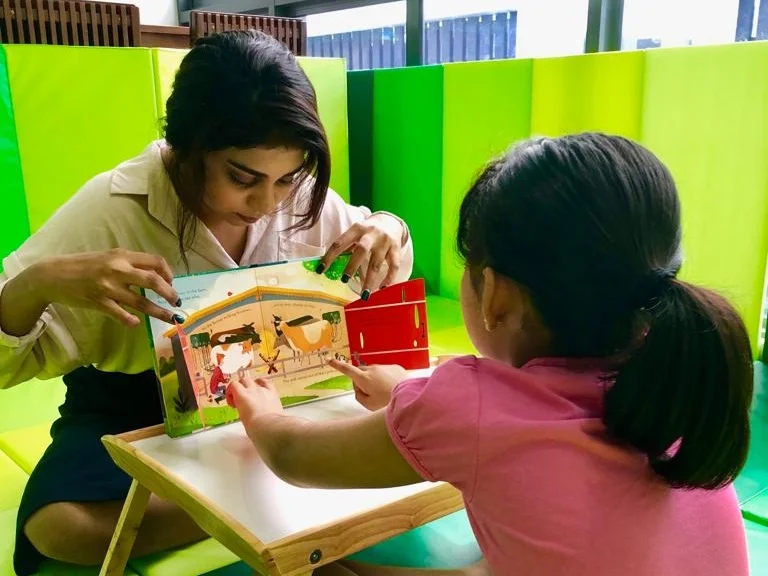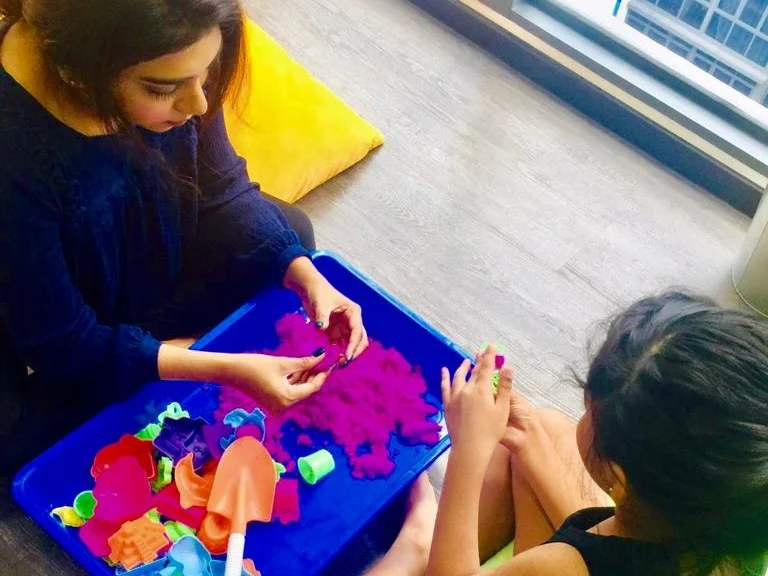SPEECH, LANGUAGE AND COMMUNICATION
A-b-C-d-E-F-G-h-I-j-K-L-m-n-o-P-Q-r-S-t-U-v-W-x-Y-z
SPEECH, LANGUAGE AND COMMUNICATION THERAPY
ARE YOU WORRIED ABOUT YOUR CHILD’S SPEECH AND COMMUNICATION SKILLS?
Don't let speech delays hold them back! Our expert speech and language therapy for children is designed to help young ones unlock their full potential.
Whether you're seeking language therapy in Singapore or specific support for speech delay, our team of specialists is here to guide you and your child through an enriching journey of communication therapy.
At Assumption Learning, we tailor our programme to nurture each child’s unique needs, setting the stage for a lifetime of confident communication. Discover the power of speech therapy Singapore trusts.
WHY CHOOSE OUR SPEECH AND LANGUAGE THERAPY
Strong Foundation for Learning
With strong language abilities, children develop a robust base for other areas of learning, enhancing their educational experiences
Increased Confidence
Boost your child’s vocal quality, self-esteem and independence with our program
Improved Communication
Our language therapy focuses on intelligible and fluent speech, reducing speech impairments and leading to effective communication
OUR SPEECH, LANGUAGE & COMMUNICATION THERAPY
Our Speech, Language and Communication therapy is designed for children aged 18 months above who will need support in communication and social skills. Our therapy goes beyond academics, it aims to build your child’s fundamental speech and language skills in a lively and child-friendly environment.
Our therapy sessions are delivered by our qualified Speech and Language Therapists in individual or group settings. Our Speech and Language Therapists use physical examination, instrumental technology and cognitive-linguistic tests to assess and develop effective treatment strategies. Our therapy treatments are specifically curated to each child’s individual strengths and weaknesses.
BENEFITS OF SPEECH, LANGUAGE & COMMUNICATION THERAPY
Provides strong foundation for other learning / developmental areas
Intelligible & fluent speech
Effective communication / reduced speech impairments
Improved vocal quality
Improved confidence & self-esteem
Increased independence
Improves emotion regulation in children with speech delays
Reduces behavioural issues caused by poor communication
WHO NEEDS SPEECH, LANGUAGE & COMMUNICATION THERAPY?
Children with Autism or Sensory Processing Disorder (SPD)
Speech, Language and Communication Therapy can help children with Autism and SPD improve verbal, social and conversational skills
Children with Attention Issues & ADHD
Building social skills teach children with ADHD how to engage, interact and understand others in social situations
Children with Global Developmental Delay
Language intervention activities help to gradually improve a child’s understanding of language, reducing their difficulties in speech delay
FEATURES OF OUR SPEECH, LANGUAGE & COMMUNICATION THERAPY
Age Group
Tailored for children aged 18 months and above
Therapy Approach
Integrates oral motor, oral postural, oral placement, and orofacial adjustments with active engagement to support effective communication in speech therapy.
Assessment and Treatment
Utilises oral postural assessments, instrumental technology, and cognitive-linguistic testing to develop tailored and effective treatment strategies.
HOW OUR SPEECH, LANGUAGE & COMMUNICATION THERAPY WORKS
STEP 1 - Initial Assessment
We assess the severity of the child’s condition—including tongue posture, speech and voice difficulties, breathing issues, or facial palsy to determine the appropriate treatment intervention protocols.
STEP 2 - Therapy Treatment
We guide the child through a series of therapeutic facial, tongue and breathing exercises to improve speech fluency, articulation, resonance, and sequential organisation in communication while reducing phonological errors
STEP 3 - Post-Review
We review what the child has learn and provide post-therapy exercises which can be conducted by parents at home
As with many therapy and rehabilitation services, speech, language and communication therapy require time and patience to see results. Every child grows and learns at his own pace but the key is to be supportive and have regular therapy sessions consistently.
3 TARGET AREAS OF SPEECH, LANGUAGE & COMMUNICATION THERAPY
1. Speech Readiness
Receptive language skills – listening and processing of sounds
Expressive Emotions – the means to communicate and express thoughts and feelings without hesitation
2. Communication
Speech Articulation – substitutions, omissions, distortions, and additions
Expressive language skills – the ability to string words into properly structured sentences with expressions and gestures
3. Readiness for Social-Emotional Communication
The ability to connect with others beyond just communication
WHAT DOES OUR THERAPY PROGRAMME COVER?
1. Auditory processing sounds
Children with speech or auditory difficulties may find it hard to follow conversations or remember spoken instructions. Our speech therapy helps a child understand and recognise different sounds to improve conversational skills. To helps us measure how their brains respond to sound, our therapists run a series of advanced listening tests where your child will listen to different sounds and respond when they hear them.
2. Basic rules of grammar
Grammar forms the basis for spoken and written communication. Grammatical errors can lead to misinterpretation and unclear message. We use therapeutic exercises such as modelling and recasting which require the child to repetitively use correct grammatical formation in his sentences, improving his use of verbs, nouns and pronouns.
3. Conversation Facilitation
This involves the use of open-ended questions to encourage longer responses and allow a child to share creative ideas and thoughts. Furthermore, naturalistic language intervention strategies such as inferential talk during small-group interactions motivate a child to use abstract language.
4. Categorisation
Children with speech difficulties generally find it hard to organise and remember words. Categorisation teaches a child how to group their thoughts, process information, store, organise and retrieve those information.
5. Vocabulary building
Effective vocabulary teaching methods involve the use of definitional and contextual information to help children gain a deeper understanding of these stylistic words. Through child-friendly definitions, contextual clues and semantic mapping, our therapists help children interpret the correct meaning of those vocabulary and the appropriate context to use them.
6. 'Show and Tell' and prompting
‘Show and Tell’ encourages optimal engagement and learning for children with communication difficulties. It sets the stage for children to become more comfortable when speaking in public, teaching them how to organise and convey their thoughts effectively.
APPROACHES TO SPEECH, LANGUAGE & COMMUNICATION THERAPY
(Not limited to)
Oro-Motor (and Oral-Placement) Therapy
Orofacial Functional Massage and Activities
Play Therapy
Behavioural Modification Techniques
Cognitive Rehabilitation Therapy
Speech Facial Massage
Functional Breathing Treatment
READY TO HELP YOUR CHILD COMMUNICATE CONFIDENTLY?
Give your child the gift of communication and boost their confidence with our communication therapy. Don't wait—schedule an assessment today to explore the benefits of our programme.
MILESTONES FOR SPEECH AND LANGUAGE DEVELOPMENT
All children vary in their development of speech and language skills. Some children’s development may be a little delayed compared to their peers. However, most children follow a natural progression for mastering the skills of language.
1 to 3 MonthsBabies cry and coo |
4 to 6 Months
|
6 to 9 Months
|
12 Months
|
18 to 24 Months
|
2 to 3 Years Old
|
3 to 4 Years Old
|
5 Years Old
|
BOOK A CONSULTATION
We offer a general Pre and Post evaluation test where we assess your little one’s milestone delays for speech and language development. Drop us an enquiry or book a consultation now!
